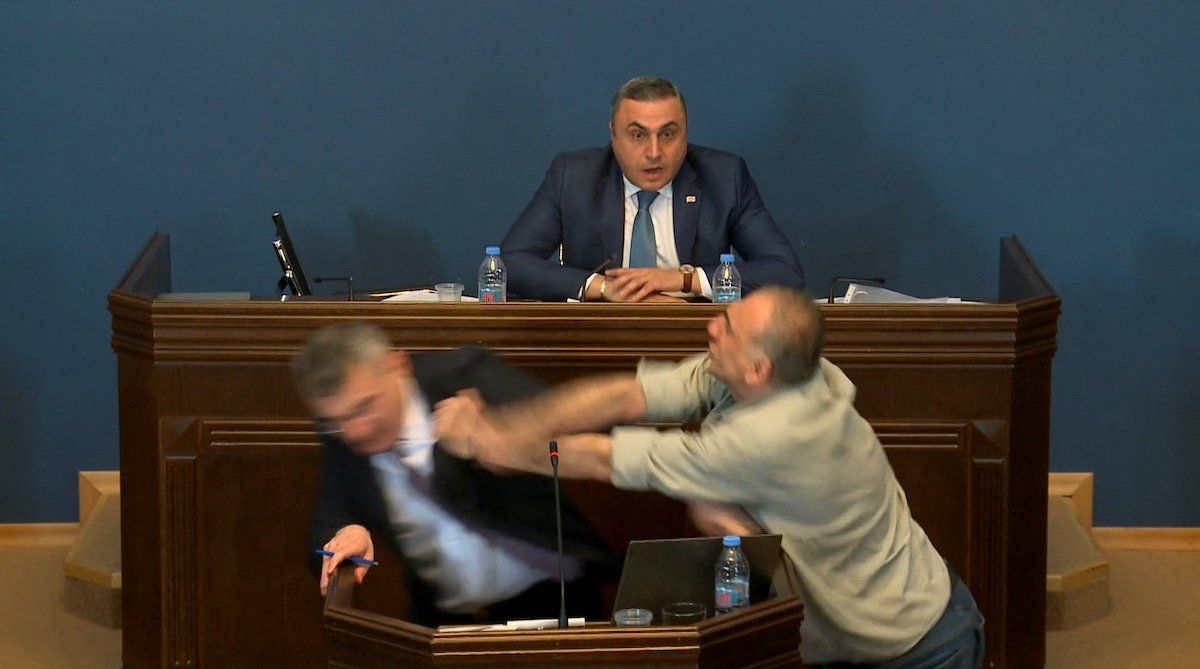Georgia’s ruling party, Georgian Dream, on Wednesday advanced a controversial “foreign agents” bill that rights groups say could be used to stifle civil society and silence political opponents.
The bill, which has sparked street violence and a parliamentary fistfight, would require any organization receiving 20% of its funding from abroad to register as a foreign agent.
Critics call it the “Russian law” because it mimics legislation the Kremlin has used to silence dissent in Russia. Georgian Dream and its billionaire founder, who made his fortune in Russia, are often seen as sympathetic to Moscow. The Kremlin denies any connection to the bill.
Georgian Dream says the law is like the US Foreign Agents Registration Act, aka FARA. But while FARA primarily focuses on government lobbyists, the Georgian law targets any organizations that have foreign funding. The EU, meanwhile, says the bill violates democratic norms, and warned that its passage would “negatively impact Georgia’s progress” in joining the bloc.
The bill, which must still pass two more readings before becoming law, is “very damaging for Georgia’s image and for Western support of Georgia,” says Tinatin Japaridze, a Georgian-born analyst at Eurasia Group.
It’s a sign, she says, that the former Soviet republic is at risk of tilting in the “direction of being under Moscow’s influence yet again,” particularly if Georgian Dream retains control after October’s crucial parliamentary elections.



















